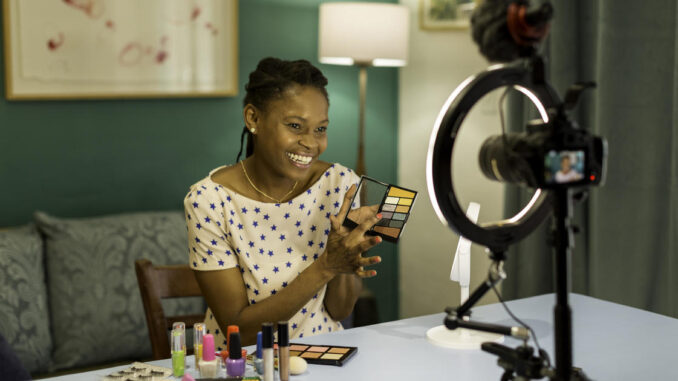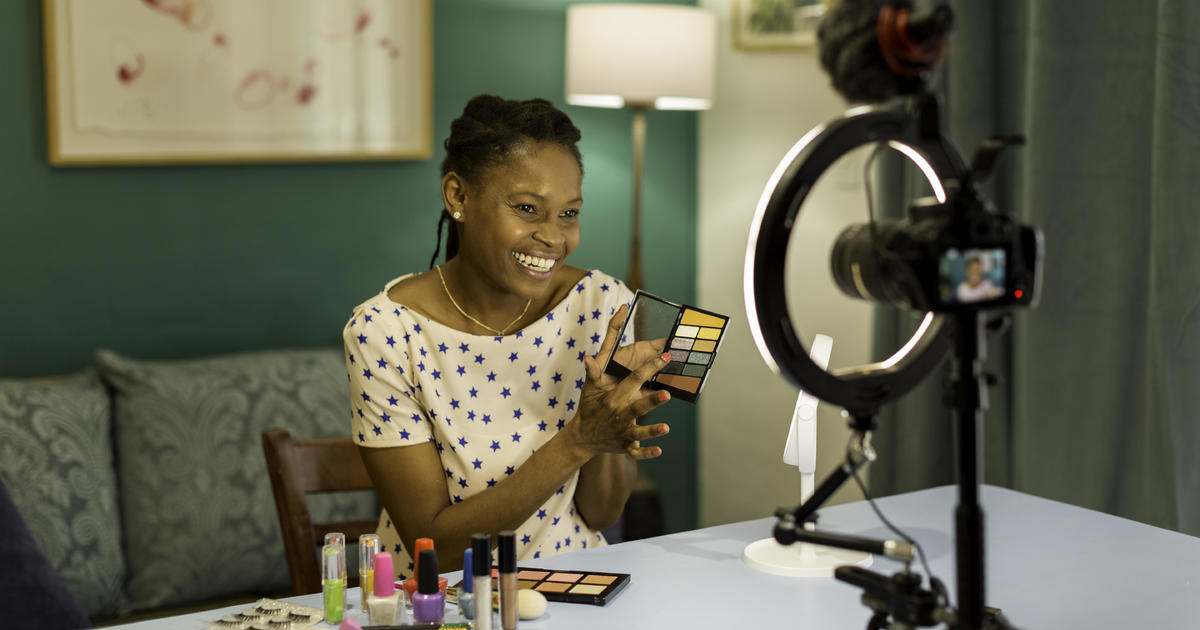

Commercialization and message
Retailers are adopting color makeup in the same way that women of color are buying beauty products.
Last year, Hispanic consumers spent 6.1% more on beauty and other items and 5.4% more on black Americans, according to NielsenIQ.
Black entrepreneurs are punctured by retailers and investors who think their products are exclusively for women of color, even though they outperform other brands. Claims. Still, many industries are working to boost black entrepreneurship. Including sneaker shops..
Cosmetology brands, especially for women of color, may be was locked up In Stores — Even after stores such as Wal-Mart, CVS Health, and Walgreens promised to stop that practice last year.
Taedra Mitchell Jackson, marketing director at Detroit-based makeup company The Lip Bar, said retailers should be careful not to think of adding merchandise from a black owner as a symbolic gesture. I am.
“Merchandising is important, but the message and the mood when walking in the store are just as important,” she said.
Jackson pointed out that some social media influencers were dissatisfied with the fact that Lipbar’s products were trapped in Wal-Mart and “created an inferiority complex.” Wal-Mart said, “Anything at Wal-Mart. We do not tolerate any kind of discrimination. ”
Fenty effect
The problems faced by black-owned cosmetology brands are not new. The product has been around for years, but it’s struggling to hit the shelves, says Tiffany Gil, a professor of history at Rutgers University.
“Beauty illusions have often been built around praising the white body,” Gil said. “And putting on makeup for women with darker skin and visibly incorporating it into campaigns means completely undermining the entire foundation of the industry.
And when the brand finally creates make-ups for darker skin shades, those products are only sold online.
“As a black consumer, we often don’t have the opportunity to have an in-store retail experience,” Gil said.
The situation began to change in 2017 when singer Rihanna launched the Fenty Beauty make-up line. In two years, Fenty Beauty has become one of the top 10 selling brands, alongside decades-old companies such as Mary Kay and L’Oréal’s Urban Decay. Competitors have noticed this and have begun to add more shades for darker skin or promised to give more shelving space to black-owned brands.
As of mid-2020, according to a digitalundivided survey, 183 black and Hispanic female founders have secured at least $ 1 million in investment in their businesses, twice as much as in 2018. That’s it, said Lauren Maillian, CEO of digitalundivided. A database of companies founded by over 800 black and Hispanic women.
Monique Rodriguez, a black entrepreneur who co-founded the natural hair care company Mielle Organics, realized that last year’s sales increased rapidly year-on-year. This year she secured a significant investment from Boston-based private equity fund Berkshire Partners.
“I don’t think it will disappear,” she said of her efforts to diversify her beauty. “Stay here, but we must strive to keep our voices heard. Hmm.”
An increasing number of major retailers are dealing with black-owned beauty brands
Source link An increasing number of major retailers are dealing with black-owned beauty brands

Be the first to comment